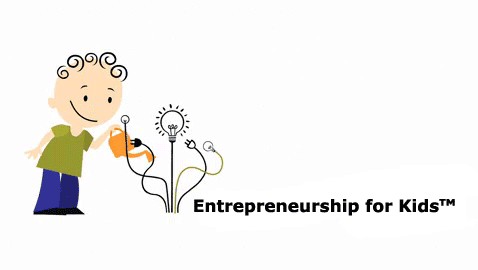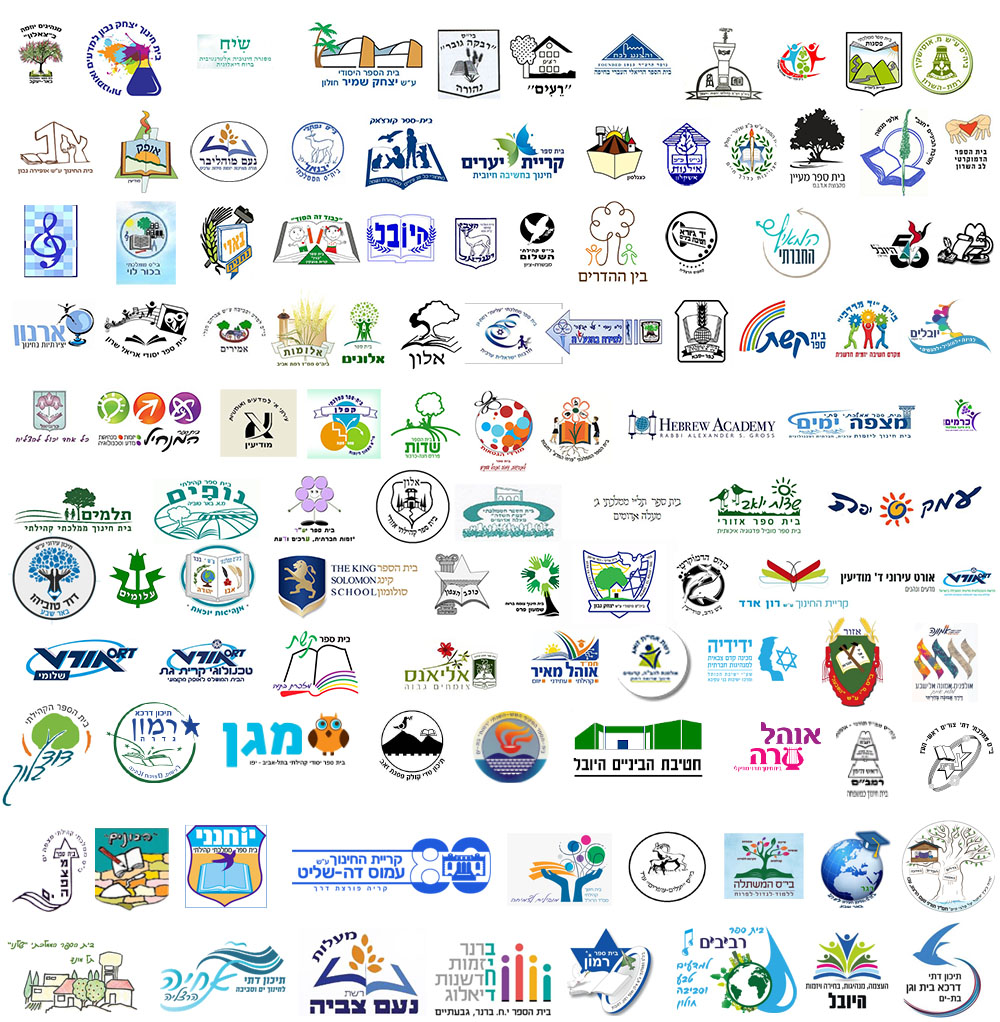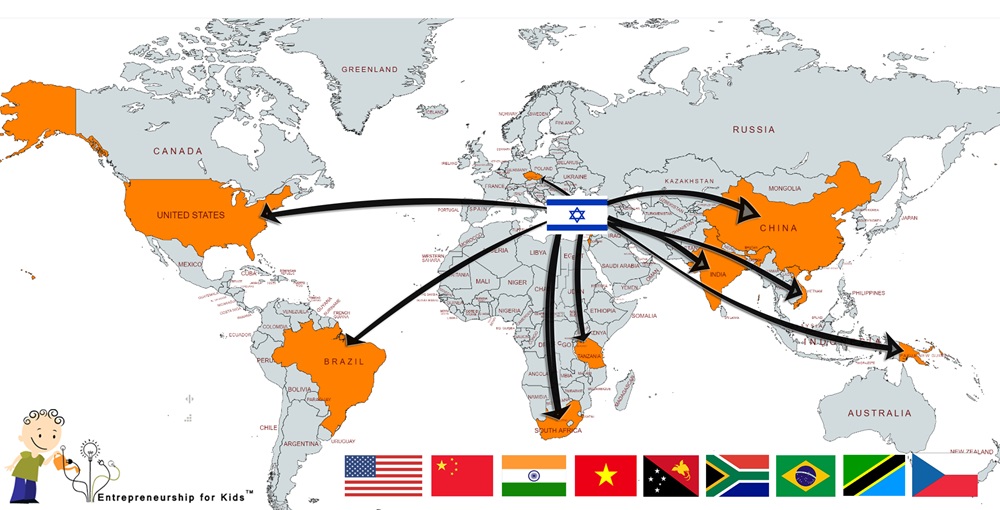


Advantages of Galit Zamler's Entrepreneurship Education Method
You can find the answer to the question: 'Why Put Efforts on Entrepreneurship Education From an Early Age?' on the home page.
According to Galit Zamler, entrepreneurship education involves imparting knowledge and developing the competencies and skills necessary for success in the 21st century. This should be done in a supportive and encouraging environment from an early age while experimenting with an entrepreneurial process.
Galit Zamler, who developed the program, believes that entrepreneurship education should be carried out by teachers who schools already employ;
- When teachers undergo entrepreneurship training, they acquire essential skills for today's rapidly changing world.
- Teacher development in entrepreneurship education helps them and the education system be relevant to students and prepares them for integration and even leadership as adults in the real world.
- School teachers who teach entrepreneurship and identify abilities that students possess but aren't reflected in a student's grade sheet realize that these students can succeed in life by utilizing those abilities. This understanding drives teachers to believe in the same students. As Rabbi Carlebach said, "All a child needs is one adult to believe in him."
- Moreover, when an entire school staff undergoes a training course in entrepreneurship education, the organizational culture of that school changes. The school fosters an entrepreneurial culture that, with all its advantages, enables students and staff to dream up and achieve their goals.
- Galit Zamler insists on providing frontal training for teachers before they receive the entrepreneurship program modules, even though they are written clearly and immediately applicable. This method proves itself, as in the frontal training sessions, Galit succeeds in conveying to the teachers the entrepreneurial spirit that underlies the words and presentations.
- Entrepreneurial skills are relevant to each of our children and can be vital in helping them succeed in life. Children can acquire these skills at an early age. The sooner we expose children to entrepreneurship education, the better. We will be able to raise a generation of people who believe in themselves and aspire to leave their mark on the world, making it a better place.
This program encompasses a wide range of topics related to entrepreneurship. Through it, children learn all the steps an entrepreneur takes from conceiving an idea to achieving success. This instills in children the understanding that each is special in their style and can succeed.
This innovative program is unique and experiential, and kids will remember it. It combines lectures, videos, and real-life examples from the experiences of mature entrepreneurs and children's everyday surroundings. Educators utilize presentations, games, and other activities that encourage students to think critically and seek solutions to problems in the world.
Watch this presentation about the Entrepreneurship for Kids Program:
The Entrepreneurship Program in Schools
EFK is the most popular enrichment program among Israeli schools. It nurtures an entrepreneurial mindset from an early age. The program is taught in primary, middle, and high school.
Read where and how the program has been implemented in schools.

Below are logos that represent some of the schools that have so far taught the EFK program in Israel:

And here are countries around the world that have taught the EFK program:

What Is Required to Implement the Program?
Schools with teachers who possess entrepreneurial spirits and are passionate about entrepreneurship education are eligible to apply.
Private companies or governments that wish to implement the program in their state and can distribute it to many schools, reaching a large number of children, may contact Galit Zamler to obtain a license.
The Program Outline
EFK is a modular enrichment program that exposes students to the entrepreneurship domain and the entrepreneurs' mindset. It empowers each child as an individual and fosters a goal-oriented team. All topics are conveyed to students in their language and an engaging manner.
The program includes a variety of topics, such as:
Different types of ventures, vision, business plan, data collection and analysis, program marketing, innovation, creativity, setting up a company, intellectual property, brainstorming, budget, negotiation, product life-cycle, smart consumerism, teamwork, concepts from the business world, humor and optimism, making challenging opportunities work, public speaking, online marketing, event production, PR versus advertising, business intelligence, the art of persuasion, and social entrepreneurship.
Read more about the program:
Various schools' experiences with the program
recommendations, and reviews on the program
The Program Developer

The entrepreneurial education program was developed in Israel as an educational project by Galit Zamler, a serial technological and educational entrepreneur, speaker on entrepreneurship, and consultant on entrepreneurship education in schools. Galit holds an M.B.A. in Business Administration and a B.A. in Social Sciences and Business Administration.
Another venture developed by Galit Zamler that encourages creativity and innovation among students is the Vickathon project which leads experiential hackathons. These are one-time events where participants develop creative problem-solving ideas and present them in a competitive environment.
As someone who encourages entrepreneurship education from an early age in schools and understands its high impact on the future of each and every individual, Galit Zamler is curious to know why some schools do not expose students to entrepreneurship.
As of now, in light of conversations with school directors, teachers, and parents, Galit found nine reasons:
1. Lack of Awareness
Directors and teachers understand that students need to be prepared for life. Still, they are often unaware that entrepreneurial studies, which combine imparting knowledge, empowerment, experience, and mentoring, can meet this need, making learning both exciting and meaningful.
2. Lack of Knowledge
Sometimes, there is a willingness to teach students entrepreneurship classes, and even the school assigns it a weekly hour in the curriculum; however, there is no training or guidance for teachers. In this situation, each teacher has to reinvent the wheel to the best of their understanding, and the teachers do not always know what to teach and how. When the study materials are well-prepared and well-written for the teachers, they undergo a short and focused tutorial, which allows them to enter the classroom and teach entrepreneurship with confidence.
3. Concern About the Subject
To teach entrepreneurship, teachers should be willing to step out of their comfort zone and allow students to be creative, think critically, and come up with ideas on subjects they are not always experts in. This exposes the teacher to his students as not knowing everything. Some teachers fear this situation, although there is no reason to worry. We are not expected to understand every topic that interests our students, but we can help them develop in directions that interest them.
4. Fear of Technology
Israel is considered one of the most entrepreneurial countries in the world, primarily due to its innovative technological developments. Consequently, non-technological teachers are concerned about the need for technical knowledge that they lack. Entrepreneurship can be found in many areas and is not limited to high-tech industries. Entrepreneurship can be social, organizational, scientific, environmental, political, etc. Any teacher can make entrepreneurship a subject close to their heart. In general, entrepreneurship education aims to develop a wide range of skills to help students succeed in any field they choose to pursue.
5. A Disappointing Experience
Directors and teachers who have had a disappointing experience implementing entrepreneurship studies at the school are reluctant to do so again. Today, there are many opportunities to teach entrepreneurship, and every school can find the right program. The Entrepreneurship for Kids Program is one of them.
6. Lack of Budget
While entrepreneurship studies are considered a relevant and up-to-date topic, they do not necessarily involve high costs, especially if the school's teachers are the ones teaching the students, rather than external tutors. Additionally, reaching out to students' parents and asking for their support as guest entrepreneurs and experts in their field can enrich student learning and contribute to parents' relationships with the school.
7. Reluctance Towards a Subject Perceived as Lacking Values
Some schools are reluctant to find themselves encouraging ventures whose sole purpose is commercial, while they view their role as an educational institution with values. However, as mentioned, entrepreneurship is primarily a process of skill development, and the choice of which field to channel it towards lies in the hands of the educational staff. Thus, it can also be social and value-based entrepreneurship that contributes to society and the environment without financial profit considerations.
8. Lack of Time
A recurring reason in many schools is the lack of time, as they need to cover and teach the material in the Ministry of Education's curriculum. The order of priorities is subject to school administration considerations. Principals who want and understand the importance of preparing students for the future find the time.
9. The School Teaches Using the PBL Method
One element of the entrepreneurial process that students go through is realizing an idea for an initiative/project. The PBL method, also known as project-based learning, incorporates a project. There are other common factors, but the emphasis of entrepreneurship education, as mentioned several times here, is mainly on the skills students acquire. The initiative and project are part of the experience, but not the main issue.
If you have any thoughts on the matter that you would like to share, you are welcome to write to Galit Zamler.
Galit Zamler's Talk About Entrepreneurship from a Young Age
Watch this clip in which Galit Zamler talks at the Global Innovation Field Trip event about entrepreneurship from a young age at school.
Galit Zamler Answers Questions
How do you know that the Entrepreneurship for Kids Program is a success?
"The numbers, comments, interest, and demand repeatedly prove that the EFK program is a successful project.
I began working in entrepreneurship education in 2009 at one school (Moreshet Moshe in Ramat Gan). Since then, dozens of schools have joined to teach the entrepreneurship program, with more joining each year. Therefore, I know this is a success."
What comments did you get from the principals and the teachers?
"I'll give a few examples that are just the tip of the iceberg:
Some principals introduced the program in their schools and then moved to another school. Then, they turned to me to teach the program in the new school. Tova Goldstein and Shlomit Shigelblat did just that. Returning customers show me that the program is excellent.
Year after year, teachers and principals teach this program and tell me that their students eagerly anticipate and look forward to the entrepreneurship lessons. That makes me realize I've touched the students' hearts, sparked their interest in entrepreneurship, and helped them express themselves adequately.
One teacher (Chani Richmond) taught the entrepreneurship program in a private school in the United States. She wrote to me that she misses teaching it and that she has learned a lot from it herself. That saying made me realize that the program empowers teachers, too.
Furthermore, teachers who attended an institutional training I led on entrepreneurship education within the school (A.D Gordon, Ramot Weizmann, and Yitzhak Navon schools) wrote feedback greeting the course's significant contribution to personal development and their ability to teach students life skills. Through such feedback, I learn how the program provides teachers with knowledge and training relevant to our advanced world and helps them prepare and learn together with students."
What comments have you received from the students?
"One of the inquiries I've received was from a student (Itay Shteinberg) who participated in the EFK course as a fifth-grader. After eight years, he contacted me to discuss an idea for a project and sought my opinion. After so long, that kind of inquiry proves that the entrepreneurship studies were meaningful to him.
Another inquiry was from a student (Yair Weizenhoiz) who participated in entrepreneurship lessons as a third-grader. Four years later, he turned to me and told me that he planned to present the project he developed while taking part in the entrepreneurship program in front of his classmates at the time (7th grade). Yair asked me to watch him talk about his venture. This brings enormous satisfaction, and again, the understanding that entrepreneurship studies have a significant impact on children.
Another occasion was when a teacher (Lee Glick) felt she was not progressing with the program modules because students often had heated discussions about program topics. These discussions made me understand that the program excites the students. It encourages their involvement, which is more important than moving on with the study materials, especially when those same students asked the teacher the following year to continue teaching entrepreneurship."
Is the program successful abroad as well?
"The Hebrew Academy, a US private school that gives its students advanced tools and programs, taught my entrepreneurship program. The school staff professed that it was an eye-opening program. They asked me to continue teaching the program a year later. This occasion demonstrates that the program offers something unique, innovative, and essential.
Additionally, companies from Hong Kong, South Africa, India, Vietnam, Papua New Guinea, Brazil, and others have obtained licenses to distribute the program in their respective countries. Therefore, it is a feeling of satisfaction that the program has become an international success.
Furthermore, I taught students from China an online yearly entrepreneurship course. There's a demand for this program, and it implies success."
What are the students' parents saying about the program?
"Sometimes parents come to me during final events at the end of the year, in which their children present the projects they've been working on during the year. They often tell me that what the students learned, they learned in a bachelor's degree. From that, I understand that the value students receive from entrepreneurship studies is high and that their parents understand it.
There are schools where students present the projects they have been working on throughout the year. Usually, during such events, their parents tell me how much their kids have learned from the program. I know from them that the values and skills the students learn are valuable and needed.
Some parents wrote to me about how much their children have earned from their entrepreneurial studies. Those are letters that are always fun to get."
When did you realize that the program is marketing itself?
"Every year, I encourage the schools to mark the Global Entrepreneurship Week, and more and more schools are doing so each year. Even schools not part of the entrepreneurship program are informing me about it.
When a teacher (Michal Maman) taught entrepreneurial lessons in one school, she moved to another school and asked to introduce the program there. From this, I realize that the program is marketing itself.
When people from all over the world visit the program website and show interest in implementing it in their country, it shows that the program is innovative internationally.
Additionally, when schools that already teach entrepreneurship and execute many projects turn to me because they are interested in the program's process and depth, I know the program has a real added value. This value stems from the fact that I am an experienced entrepreneur who understands the world of entrepreneurship closely."
What are the comments that have moved you the most until now?
"I'm always getting excited when I receive emails from people from around the world, such as parents, teachers, principals, businessmen, and others, who encourage me for this project called Entrepreneurship for Kids Program and tell me that I'm inspiring.
A mother whose son participated in the course when he was in the sixth grade contacted me eight years later. She asked if her seventh-grade daughter could join the entrepreneurship course. Her application helped me understand that the program had a positive impact on the child and his family.
It excites me to hear that teachers who listen to my lectures on entrepreneurship, in general, and entrepreneurship education, in particular, tell me that I bring something different because I come from outside the education system, have experience as an entrepreneur, and am a mother to children.
Teachers say students in entrepreneurship classes are not eager to go to recess. They prefer staying in class to ask questions and share their project ideas, which proves that entrepreneurship and its different aspects fascinate them.
It moved me that India's government representative came to Israel to meet with me and explained that they want to learn entrepreneurship education from Israel and that he is interested in implementing the EFK program in Indian schools. This gives me a feeling of satisfaction and pride in the country.
When a wealthy private school in Israel (King Solomon) that can allow itself to purchase every program it wants chose to teach the program, and its school staff showed admiration for it, that made me realize that the program stands to the highest standards possible
It always excites me when teachers tell me parents call them to find out 'what classes do their children study?' They do so because the children come home and say that they enjoy the entrepreneurship classes.
I feel satisfied when the lesson is over; the students think it's ending too fast, and they're not rushing out for the break. On the contrary, they're staying to ask questions and explain their ideas for projects. That's how they prove that entrepreneurship interests them in various aspects."
If you agree that entrepreneurship studies are essential to students' success in real life, contact Galit Zamler.
Schools from all over israel have taught the program.